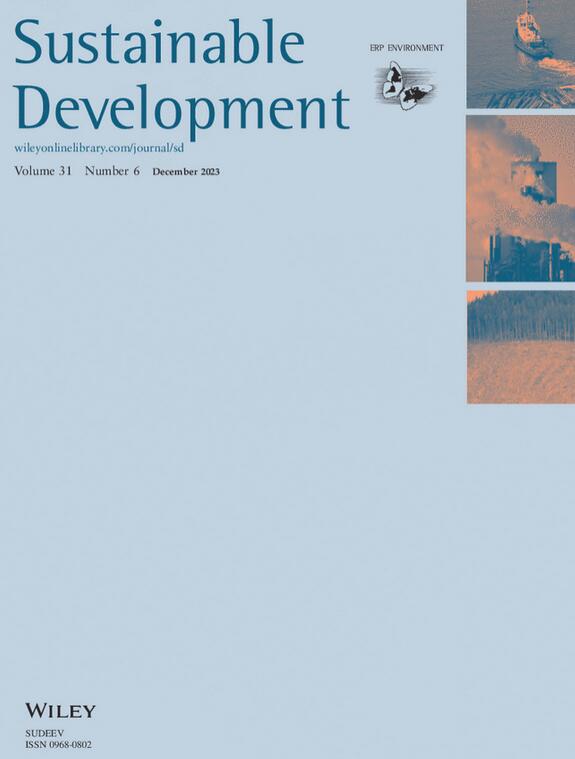Benefit or burden? An exploratory analysis of the impact of anti‐money laundering regulations on sustainable development in developing economies
IF 8.2
1区 环境科学与生态学
Q1 DEVELOPMENT STUDIES
引用次数: 0
Abstract
Abstract Over the years, efforts have been put in place to address money laundering activities including financial crime and illicit funding controls. These efforts have been recognized to promote financial integrity and effective governance systems. They have been further adjudged by the United Nations' sustainable development (Goal‐16) with a major concern to achieve peaceful, just and inclusive development. Previous studies reveal that money laundering activities have major implications for economic growth. However, little is known about the main implications of anti‐money laundering (AML) regulations on sustainable development. On this note, this study contributes to the ongoing debate by investigating the relationship between AML regulations and sustainable development in 72 developing economies, consisting 29 upper middle income, 33 low middle income and 10 low income countries. Using instrumental variable generalized method of moment (IV‐GMM), panel quantile estimation technique and dynamic panel threshold analysis, the findings are as follows. First, AML regulations promote sustainable development. Second, the panel quantile regression reveals that countries with moderate AML regulations attain higher sustainable development than those with excessive regulations. Further results on regional analysis show that AML regulations are more effective in Latin America, South Asia, Europe & Central Asia and Middle East & North Africa than in Sub‐Saharan Africa and East Asia & Pacific. These results are robust and stable after conducting a number of robustness analyses. The study suggests that effective AML regulations should be moderate and well‐implemented to further improve economic, social and environmental sustainability in developing countries.利益还是负担?反洗钱法规对发展中经济体可持续发展影响的探索性分析
多年来,人们一直在努力解决洗钱活动,包括金融犯罪和非法资金控制。这些努力已被公认为促进财务诚信和有效的治理体系。联合国可持续发展目标(目标16)以实现和平、公正和包容的发展为主要关注点,对其进行了进一步评判。以往的研究表明,洗钱活动对经济增长有重大影响。然而,人们对反洗钱(AML)法规对可持续发展的主要影响知之甚少。在这一点上,本研究通过调查72个发展中经济体(包括29个中高收入国家、33个中低收入国家和10个低收入国家)的“反洗钱”法规与可持续发展之间的关系,为正在进行的辩论做出了贡献。采用工具变量广义矩法(IV‐GMM)、面板分位数估计技术和动态面板阈值分析,研究结果如下:第一,反洗钱法规促进可持续发展。其次,面板分位数回归显示,“反洗钱”监管适度的国家比监管过度的国家具有更高的可持续发展。区域分析的进一步结果表明,拉丁美洲、南亚、欧洲和欧洲的“反洗钱”法规更为有效。中亚和中东地区北非比撒哈拉以南非洲和东亚要多。太平洋。经过一系列稳健性分析,这些结果是稳健性和稳定性的。该研究表明,有效的“反洗钱”法规应该是适度的,并得到良好的实施,以进一步提高发展中国家的经济、社会和环境可持续性。
本文章由计算机程序翻译,如有差异,请以英文原文为准。
求助全文
约1分钟内获得全文
求助全文
来源期刊

Sustainable Development
Multiple-
CiteScore
17.30
自引率
11.20%
发文量
168
期刊介绍:
Sustainable Development is a publication that takes an interdisciplinary approach to explore and propose strategies for achieving sustainable development. Our aim is to discuss and address the challenges associated with sustainable development and the Sustainable Development Goals. All submissions are subjected to a thorough review process to ensure that our readers receive valuable and original content of the highest caliber.
 求助内容:
求助内容: 应助结果提醒方式:
应助结果提醒方式:


